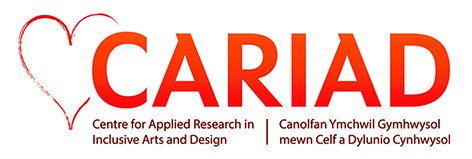CARIAD CWTCH 9th November
‘Research and making are two ways of thinking that continually intercept one another. They are rolling practices, often convoluted, snaking, twisting and coiling together. Neither linear nor continuous, they involve a process of doing and redoing. It is an awkward, fascinating, uncomfortable and irritating process and sometimes completely unsuccessful. Ideas surface slowly, glimpsed intermittently, as if seen at the bottom of a very murky pond. Fishing without a net.’ Alyson Brien
We were really delighted to be joined by Professor Jeffery Wallace, from the School of Education. Jeff talked about his research interest in bibliotherapy, and as usual sparked lots of ideas in all of us. Jeff describes bibliotherapy as the use of literary texts – for example novels, short stories, poetry – for broadly ‘therapeutic’ purposes, within carefully selected contexts. Its principle of inclusivity is based on group practice and on reading aloud. The novelist Blake Morrison describes bibliotherapy as “an experiment in healing, or, to put it less grandiosely, an attempt to see whether reading can alleviate pain or mental distress.” No ‘critical’ prescriptions are made; instead, the space for reflection on texts offered by bibliotherapy is open, requiring only the sharing of responses for the purposes of mutual support and understanding.
We also welcomed artist Sue Hunt, who has been conducting fantastic inclusive arts projects in China, India, Australia and Zambia.
